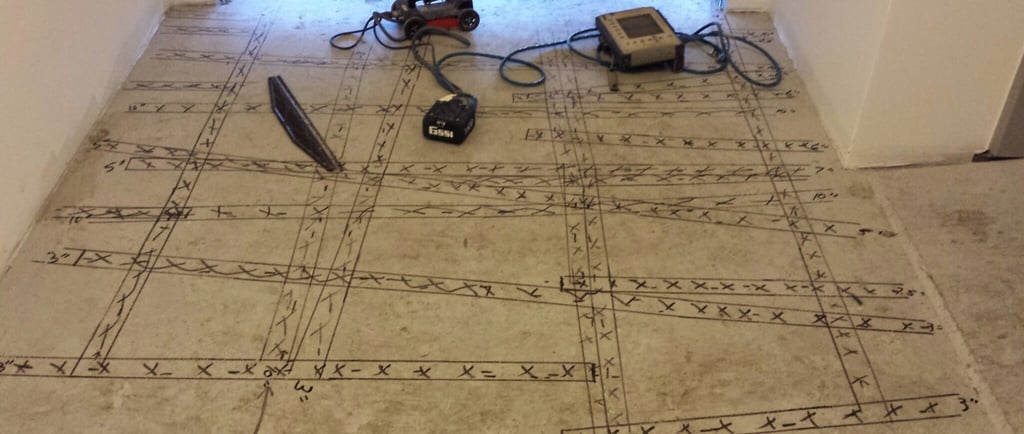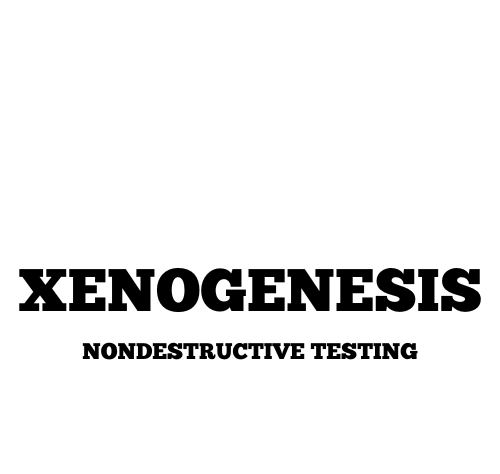What is GPR (Ground Penetrating RADAR
Roger Baldwin


What is GPR (Ground Penetrating Radar) and what are it's uses.
Introduction:
In the realm of modern surveying and construction, technologies like Ground Penetrating Radar (GPR) have revolutionized the way we perceive subsurface imaging. Among the various options available, GPR stands out for its accuracy, versatility, and efficiency. In this article, we delve into the intricacies of GPR, its applications, and how it benefits diverse industries.
Understanding GPR:
GPR (Ground Penetrating RADAR) employs electromagnetic waves to penetrate the ground or structures, revealing subsurface anomalies without invasive measures. This non-destructive technique provides invaluable insights into the condition of building components, such as rebar, post-tension cables, and voids, facilitating informed decision-making in maintenance and rehabilitation efforts.
Applications of GPR (Ground Penetrating RADAR):
Bridge and Building Inspection: GPR plays a pivotal role in bridge and building inspections, enabling engineers to detect corrosion, voids, delamination, and other structural defects hidden beneath the surface. Vital components of a building can also be evaluated such as, locating rebar, conduits, beams and cables so that they may be avoided when cutting or coring. They can also help to determine the structural integrity of the structure. By conducting comprehensive scans, authorities can prioritize repairs and ensure the safety and longevity of critical infrastructure.
Utility Detection: Beyond bridge and building inspection, GPR can be utilized in locating underground utilities like water pipes, electrical cables, and sewer lines. This capability proves invaluable for construction projects, preventing accidental damage to essential services and ensuring workplace safety.
Archaeological Surveys: In archaeology, GPR aids in mapping buried artifacts, structures, and geological features without disturbing the site. This non-invasive approach preserves historical integrity while providing researchers with valuable data for analysis and interpretation.
Environmental Assessments: Environmentalists utilize GPR for assessing soil composition, groundwater levels, and contamination plumes. By mapping subsurface conditions, environmental engineers can devise strategies for remediation and conservation efforts.
Geological Exploration: Geologists leverage GPR to study geological formations, identify bedrock layers, and locate groundwater reservoirs. This application facilitates mineral exploration, geotechnical investigations, and geological mapping with enhanced precision.
Benefits of GPR (Ground Penetrating RADAR):
Accuracy: GPR delivers high-resolution scans, allowing engineers to pinpoint anomalies with remarkable accuracy, thereby minimizing false positives and optimizing resource allocation.
Efficiency: Compared to traditional methods like manual probing or excavation, GPR offers rapid data acquisition and processing, accelerating project timelines and reducing labor costs.
Non-Destructive: As a non-destructive testing technique, GPR eliminates the need for invasive procedures, preserving the integrity of structures and minimizing disruption to surrounding environments.
Versatility: From infrastructure assessments to archaeological surveys, GPR adapts to diverse applications, making it a versatile tool for professionals across various industries.
Conclusion:
In the ever-evolving landscape of technology, GPR stands as a beacon of innovation, empowering engineers, archaeologists, and environmentalists with unparalleled insights into subsurface dynamics. Its applications span from infrastructure maintenance to environmental conservation, embodying the synergy between scientific advancement and societal progress. As we continue to harness the potential of GPR, we pave the way for safer, more sustainable built environments and a deeper understanding of our shared history and natural landscapes.
At Xenogenesis of Jacksonville we specialize in the evaluation of concrete structure. With over twenty years of experience we are very well versed in concrete evaluation. Please give us a call for a demo or to schedule a project. We are local to Jacksonville, Florida but cover the entire southeast US with offices in Atlanta and Charlotte as well.
1500 Beach Blvd
Jacksonville Beach, FL 32250


